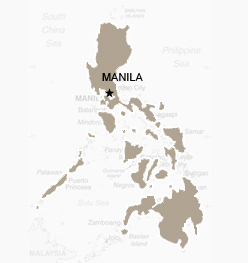

Spain provides $5.3 M for water services in Luzon and Mindanao

April, 2009 MANILA, Philippines – Spain will provide a new grant of $5.3 million (P258 million) to the Philippines to support the government’s initiatives to enhance the sustainable delivery of water to about 122,000 households in 36 depressed communities in Luzon and Mindanao.
The Joint Program Document for “Enhancing Access to and Provision of Water Services with the Active Participation of the Poor” was signed recently and witnessed by Spanish Ambassador to the Philippines Luis Arias, National Economic and Development Authority (NEDA) Director-General Ralph Recto.
The Philippine project is under the Millennium Development Goals Achievement Fund (MDG-F) financed by the Spanish government, administered by the United Nations Development Program (UNDP) and to be implemented by the Department of Interior and Local Government (DILG).
In July 2008, the Philippines received a grant of P384 million for three years on climate change efforts of the country.
Provision of safe drinking water directly responds to the attainment of one of the MDGs, which calls for a 50 percent reduction by 2015 of the population without access to safe drinking water. To date, there are still 242 waterless municipalities outside of Metro Manila.
“This new program will support policy reform and community-based initiatives to enhance the sustainable delivery of water to about 122,000 households in 36 depressed communities in Cagayan, Bicol and most of Mindanao,” Recto said.
He noted that a review done by the UNDP on the joint program said that it “appears to be highly strategic responding to clearly identified sector priorities and geographic areas of the country.
UNDP also said in a review that the program design is well-developed, has clearly-defined strategy to reinforce existing institutional structures and that monitoring and evaluation frameworks are solid.
United Nations Resident Coordinator and United Nations Children’s Fund (UNICEF) Representative Vanessa Tobin said there are a number of other programs for the Philippines in the “pipeline.”
“There are a number of others in the pipeline as well, including one in the area of Youth, Employment and Migration, and another in Children, Food Security and Nutrition,” Tobin said.
She added that this MDG-F Joint Program is evidence of successful community-managed model water supply projects in marginal communities in target areas that will gain access to improved sources of water and basic sanitation facilities.
“Further, it complements the national government’s efforts in providing potable water, especially to the remote communities in the country. Making potable water accessible to the poor allows more productive time for women to engage in economic, cultural, political and social activities, enables children to go to school, and enhances the overall health condition of the people,” she said.